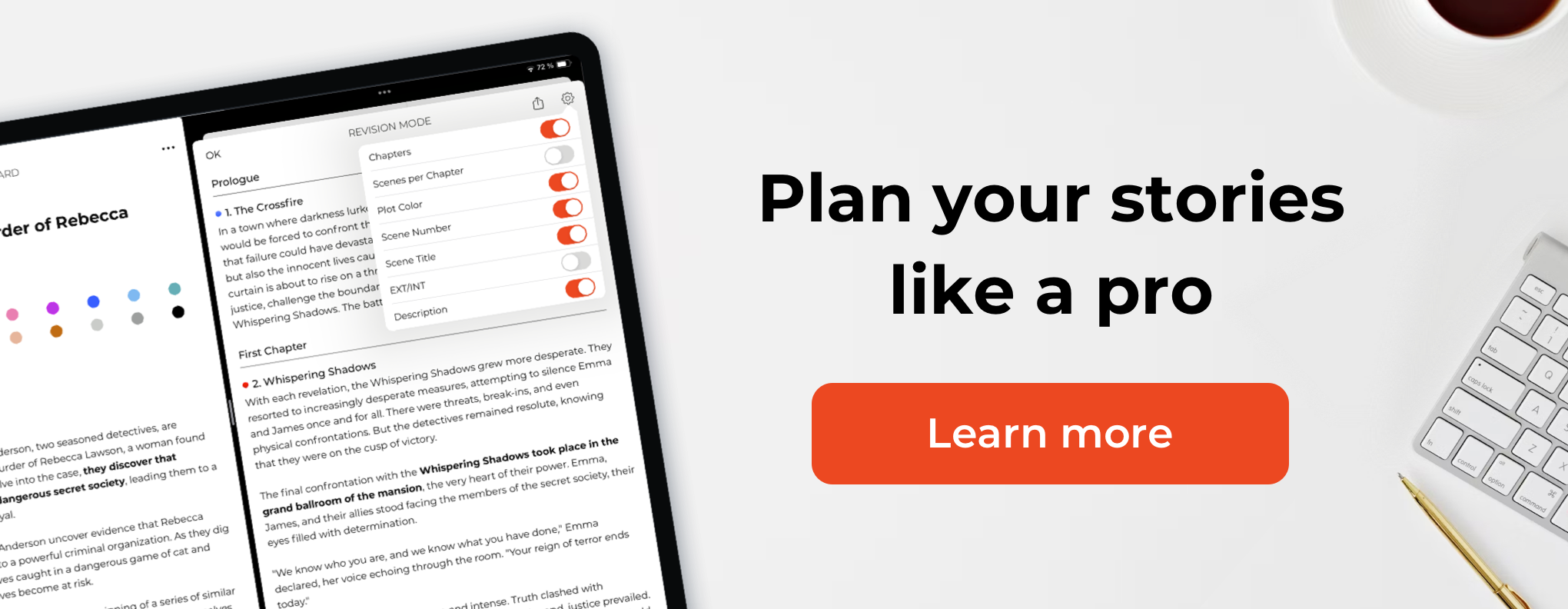When planning a novel, we often invest a significant amount of time in developing compelling characters, creating intricate plots, and devising captivating settings. However, the selection of the narrator is often approached more intuitively or based on personal preference.
While this approach is not necessarily a negative one, it is beneficial to have a good understanding of narrators. This ensures that when we make that choice, whether on instinct or consciously, we do it for the right reasons.
In the upcoming weeks, I plan to publish a series of posts discussing the various types of narrators. Each post will explore the advantages and disadvantages of a type of narrator, accompanied by excerpts from relevant books. I hope this compilation will be as useful to you as it is to me.
In this first part of the series, I want to talk to you about the most common narrative styles in novels nowdays: The first-person narrator. However, it is important to distinguish between the two main types of first-person narrator: The first-person protagonist narrator and the first-person witness narrator.


First-Person Protagonist Narrator
Of the two types of first-person narrators that exist, the first-person protagonist is the most favored by readers in current novels. Perhaps it is because it creates a feeling of closeness.
The main characteristic of this narrator is that it corresponds to the character who leads the plot. The protagonist is who tells the story, which causes a more direct connection with the reader. It is easier to generate empathy with this type of narrator.
🎯 Pro Tip: In some cases, what you want may not be to generate empathy, but to provoke a different emotion: rejection, complicity, condescension, admiration… Analyze carefully the emotion you are looking for and ask yourself if this narrator is the right one to create it —or if you think you can achieve it using a first-person protagonist narrator.
The Point of View Is Subjective
Since it is a character who tells us the story, they can only offer us his point of view on the story. It is their emotions, their thoughts, and their judgments that are the only ones we know. This can be useful, indeed, since it helps us understand the character better. But it can also be counterproductive, depending on what we want to tell and how. A first-person protagonist narrator cannot tell you what the rest of the characters think or feel, nor can they even tell you their actions objectively, since they will always do so from their own subjective POV, and will also be affected by the emotions and circumstances they are suffering at every moment.
🎯 Pro Tip: Try to analyze what you want to tell and how when you choose your narrators. Imagine, for example, that you have a protagonist who has just lost her father and feels guilty because she believes it was her fault. If you choose to tell the story in the first person through her eyes, the reader will experience the character’s sadness and guilt and understand it better. But if you want to show different points of view or maintain a certain distance from the character and those emotions, you should choose another narrator.
The Narrator Needs the Right Voice
The biggest problem with the first-person protagonist narrator is that the writer can often find it difficult to maintain distance from the narrator. This can make it challenging for the narrator to have their distinct voice separate from the author’s. While this is not necessarily a problem if it is intentional, there are times when the narrator’s voice needs to be unique and different from the author’s.
🎯 Pro Tip: To make your narrator believable, develop your character thoroughly before beginning the story. You need to carefully choose the words and expressions that suit your character’s personality, age, background, social status, and education.
Here are a couple of excerpts from books with first-person protagonist narrator examples:
📚 Opening lines of Moon Palace by Paul Auster: It was the summer that men first walked on the moon. I was very young back then, but I did not believe there would ever be a future. I wanted to live dangerously, to push myself as far as I could go, and then see what happened to me when I got there. As it turned out, I nearly did not make it. Little by little, I saw my money dwindle to zero; I lost my apartment; I wound up living in the streets. If not for a girl named Kitty Wu, I probably would have starved to death. I had met her by chance only a short time before, but eventually I came to see that chance as a form of readiness, a way of saving myself through the minds of others. That was the first part. From then on, strange things happened to me. I took the job with the old man in the wheelchair. I found out who my father was. I walked across the desert from Utah to California. That was a long time ago, of course, but I remember those days well, I remember them as the beginning of my life.
📚 Excerpt from Killing Commendatore by Haruki Murakami: I couldn’t figure out why the portraits were being received so well. I was less than enthusiastic, just trudging through one assignment after another. Truthfully, I can’t recall the face of a single person whose portrait I painted. Still, as my ultimate goal was to become a serious artist, once I took up my brush and faced a canvas I couldn’t bring myself to paint something completely worthless, no matter what type of painting it was. To do so would tarnish my sense of artistry, and shoy contempt for the kind of professional I was hoping to be.
First-Person Witness Narrator
The first-person witness narrator is a character in the story but not the main one. They tell us what they know or saw. They may be close to the action, observe it from a distance, or not have experienced it firsthand. There are no limits to how a witness narrator can communicate with us, except that they do not make themselves the focus.
There are many different types of witness narrators, each with its particularities. Some of the most commonly used types are:
1. Impersonal witness: Determined by photography and cinema, it gives us the look of a camera. Almost always written in the present tense, they are limited to telling what they see, like in La Colmena by Camilo José Cela.
2. Eyewitness: They narrate events that occurred some time ago that they witnessed in person, as Dr. Watson does in Conan Doyle’s Sherlock Holmes Adventures.
3. The informant: It is a narrator who tells the story by transcribing the facts as if it were an official document or chronicle, presenting them as authentic. The Brodie Report by Borges is an example of this type of narrator.
As the protagonist narrator, the witness has certain advantages, but also limitations and disadvantages that should be considered:
Credibility
The witness narrator takes us back to the roots of storytelling, when a person tells us something he has lived or experienced. It is a credible narrator, because they tell us what they saw with their own eyes. The story maintains the credibility of the first-person narrators, but remains in the background with respect to the main characters.
Distance
As I said in the previous point, the witness narrator is part of the story, but does not lead the plot. We see the protagonist through the eyes of this witness narrator, which can be very useful if we want to create, for example, a certain aura of mystery or idealize the main character in some way. The adventures of Sherlock Holmes would not be the same if the detective narrated them instead of Dr. Watson, right?
Limited Perspective
The witness narrator’s point of view is subjective and limited, similar to the protagonist’s, but with an additional constraint: The witness cannot be present at all moments of the protagonist’s life, nor can they fully understand the protagonist’s emotions.
Observer Role
This narrator is not the main character of the story; they are at best a secondary character, and sometimes not even that. It is crucial for the witness narrator to remain in this role in a credible way, without overshadowing the protagonist.
Distinct Voice
Similar to the main character, the witness narrator is also a character with their own background and circumstances, and it is important for them to express themselves consistently. Despite being mere observers of the story, they must narrate it in their own voice, rather than adopting the voice of the author or the main character.
Here is a excerpt from The Adventures of Sherlock Holmes with a first-person witness narrator example:
📚 Opening lines of A Scandal in Bohemia by Arthur Conan Doyle: To Sherlock Holmes she is always the woman. I have seldom heard him mention her under any other name. In his eyes she eclipses and predominates the whole of her sex. It was not that he felt any emotion akin to love for Irene Adler. All emotions, and that one particularly, were abhorrent to his cold, precise, but admirably balanced mind. He was, I take it, the most perfect reasoning and observing machine that the world has seen, but as a lover he would have placed himself in a false position.
